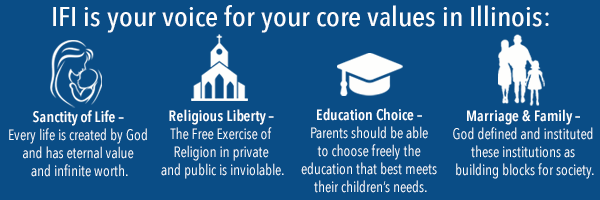SCOTUS to Decide if Christians Must Endorse Anti-Weddings
On Monday, December 5, 2022, the U.S. Supreme Court began hearing 303 Creative LLC v. Elenis, another case that pits the purported rights of same-sex couples to force Christian business-owners to create products (or provide services) that express messages related to same-sex “weddings” in violation of the Christian business-owners’ First Amendment rights.
The Court case is a challenge filed by Coloradan Lorie Smith, a wedding website designer who, in expanding her business, understandably wants to include a statement clarifying that she does not create websites for same-sex weddings. But Colorado’s boneheaded pro-religious discrimination, pro-censorship law “that bars businesses that are open to the public from discriminating against gay people or announcing their intent to do so” mandates both what Smith must do and may not say.
Smith has made clear the intent of her work:
As a Christian artist, I want to create freely and create messages that glorify and honor God. And for me, this means designing for weddings and telling the story of a couple through God’s lens of marriage. But the state of Colorado is forcing me to celebrate messages about marriages that are inconsistent with my faith. There’s a lot of misconceptions about my case and what it is that I’m asking for. I love everyone and my faith has taught me to love everyone, and I have worked with those who identify as LGBT. There are just certain messages that I cannot promote because of my faith.
While Smith originally challenged the Colorado law based on its violation of both speech and religious protections, the U.S. Supreme Court has taken it up only on free speech grounds. The threat posed to religious liberty, however, is at least as grave.
This case follows on the judicial heels of cases in which those who choose to place their homoerotic desires at the center of their identities have sued bed and breakfast inns, videographers, florists, cake bakers, and calligraphers. The plaintiffs in those cases like to pretend they are the Rosa Parks of the sexual revolution—the oppressed victims of irrational hatred based on a condition equivalent to skin color.
Anyone with an ounce of rationality should be able to see that this whole “LGBTQIAP+” political movement is based on a big fat, slimy lie—a lie not unlike a Guinea worm that works from deep inside the body politic, worming its way painfully through the muscles and sinews of its host. The only difference is the Guinea worm rarely leaves permanent damage.
For the millionth time, there are no points of correspondence between skin color per se and homoeroticism per se.
Skin color is an objective, 100 percent heritable, in all cases immutable, environmentally unaffected condition with no behavioral implications—and, therefore, morally neutral.
In contrast, homoeroticism is a subjective condition, with little to no genetic involvement, shaped in many cases by one’s environment, and constituted centrally by volitional acts that are appropriate objects of moral assessment. Making judgments about the morality of homoerotic acts and relationships is as legitimate as making judgments about any other erotic acts and relationships constituted by such acts.
Saying homoerotic acts and relationships are immoral no more constitutes hatred of “gay” persons who believe differently and act in accordance with their beliefs than does saying polyamory and plural unions are immoral constitute hatred of polyamorists.
Refusing to make floral arrangements, bake cakes, or create websites for weddings of two men is no more unjust or hateful than refusing to make floral arrangements, bake cakes, or create websites for weddings of five polyamorists, three brothers, or a man and his horse.
And refusing to create products or provide services for “weddings” of two men or two women is in no way akin to refusing to allow blacks to sit at a lunch counter. Only fools and deceivers would claim it is.
Here’s one way to know that that these cases have nothing to do with discrimination or hatred of persons and everything to do with the religious bigotry and discrimination of people who seek compulsory approval of their deviant sexual desires: Virtually every one of the Christians sued by homoeroticists, including Christian florist Barronelle Stutzman and cake baker Jack Phillips, happily made products for and served homoeroticist customers.
Theologically orthodox Christians do, indeed, sell their wares and services to homoeroticists. They simply will not use their gifts, time, and labor in the service of an event that violates their deeply held religious convictions, mocks marriage, and offends God.
Ignorant of both the meaning of the First Amendment as well as the nature and role of Christianity in the lives of Christ-followers, many non-Christians harbor (at least) two fallacious ideas. First, they believe Christians should exercise their religion only within the confines of their church building. And related, they believe the First Amendment protects only what takes place in church buildings.
Leftists want no protections for the exercise of religion outside the confines of church on Sunday. But here’s the cultural rub: For Christians, the exercise of their religion encompasses the totality of their lives, including their work.
Just as skin color, homoeroticism, and religious exercise have natures, so too does marriage. Marriage is something. It has a nature that does not change based on the legislative whims or prurient desires of humans. The law can no more change the nature of marriage than it can change the nature of horses by redefining them.
Until very recently, sexual differentiation has been central to any definition of marriage throughout history and cultures. In fact, jettisoning sexual differentiation is far more radical a change than would be jettisoning criteria regarding blood kinship, number of partners, or age of partners.
Of course, those changes are coming because—ya know—”love is love.” All that polyamorists, sibling-lovers, and hebephiles need to do now is organize, pressure the American Psychological Association to designate their erotic predilections “sexual orientations,” and abracadabra, their unions will be covered by anti-discrimination law and legalized.
When that day comes, will Christians who refuse to provide goods and services for sibling weddings, poly weddings, and hebephile-teen weddings be hauled before courts for discriminating based on “sexual orientation”? Will they be accused of bigotry and hatred?
The ceremony solemnizing an erotic relationship between two men or two women is not a wedding. Such a relationship is by nature and design non-reproductive, so it is neither sexual nor uniting. Since the central constituent feature of a true wedding is the sexual differentiation of partners, a ceremony recognizing and solemnizing a non-sexual, non-uniting relationship is not a wedding. It is the antithesis. It is an anti-wedding. And it harms all involved.
Leftists are trying to force Christian photographers, florists, bakers, calligraphers, and wedding website designers not only to create and sell products that violate their religion but also to create products that they have never before created: Anti-wedding cakes, anti-wedding floral arrangements, and anti-wedding websites.





 Illinois Senate Minority Leader-Elect John Curran (R-Lemont) admits in defeat that Illinois has all but constitutionalized abortion, being the most liberal state when it comes to abortion legislation.
Illinois Senate Minority Leader-Elect John Curran (R-Lemont) admits in defeat that Illinois has all but constitutionalized abortion, being the most liberal state when it comes to abortion legislation.


